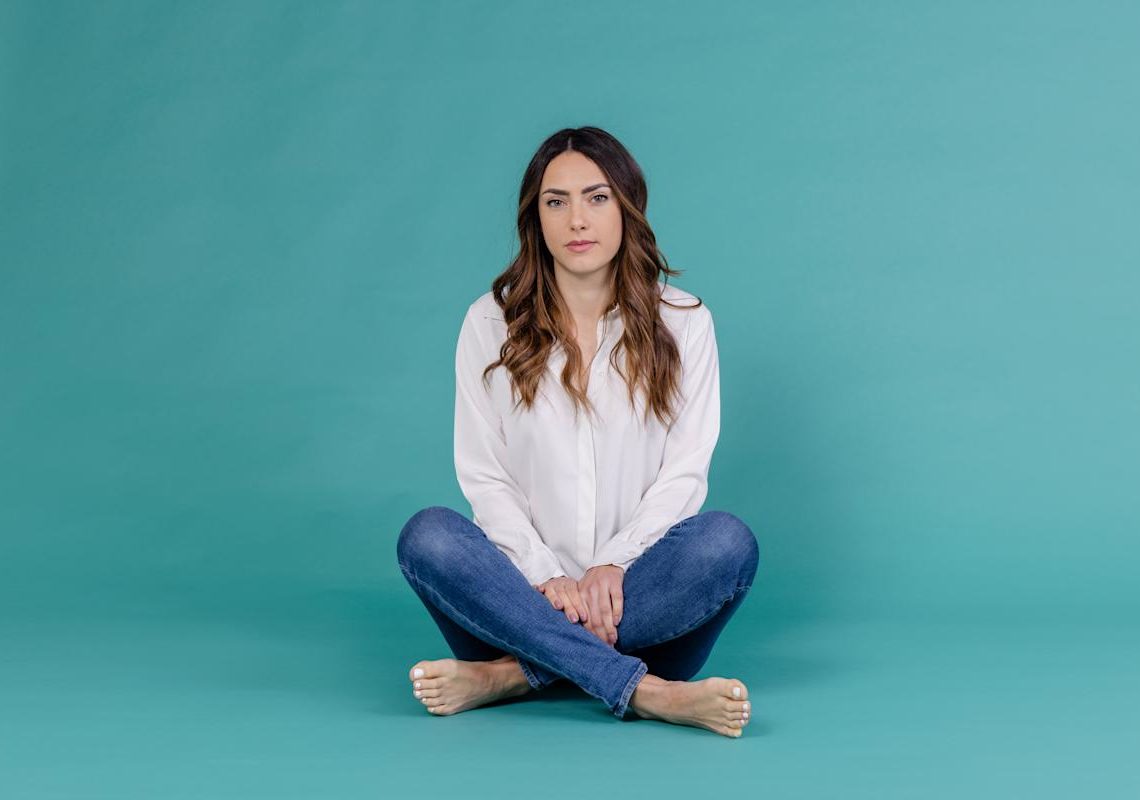A simple test of your balance, strength and flexibility, known as the sitting-rising test, could be an early indicator of how long you’ll live, according to a large-scale new study of mobility and mortality.
The study, published Wednesday in the European Journal of Preventive Cardiology, looked at how well 4,282 men and women aged between 46 and 75 could lower themselves from a standing position to the floor and then stand back up again with as little assistance as possible from their hands, knees, furniture or human helpers.
The test assesses “all the aspects of fitness that are not aerobic,” said Claudio Gil Araújo, the study’s lead author and research director at an exercise-medicine clinic in Rio de Janeiro, where the data were collected. Those aspects include muscular health, balance, flexibility and body composition, he said, each of which is important for longevity and health.
In the study, middle-aged and older people who needed no support to sit or stand were about six times less likely to die of heart disease and other cardiovascular conditions during the next decade or so than people who wobbled and had great difficulty completing the task. They also were less likely to die of other natural causes, including cancer.
There are many tests of balance or strength or flexibility, Araújo said. “But what makes this test special is that it looks at all of them at once, which is why we think it can be such a strong predictor” of longevity, he said.
– – –
How to do the sitting-rising test
Want to try the sitting-rising test yourself? First find a partner. “Don’t do this test on your own,” Araújo said. Your partner will watch you, score your test and, most important, steady you if you start to topple. (If you have disabilities or serious joint problems, such as hip, spine or knee arthritis, you probably shouldn’t do the test, Araújo said, since it could cause unnecessary pain or injury.)
Next:
-Clear a level space so you have room to maneuver but also, if needed, still have a wall, chair or other support nearby.
-If the floor is bare, put down a pad in case you land with a thump while sitting.
-Remove your shoes and socks.
-Stand with your feet slightly apart, then cross one foot in front of the other. Hold your arms however you’d like.
-Lower yourself until you’re seated on the ground. Try not to wobble or use any support to get yourself settled, such as a hand, forearm or any part of your legs.
-From this seated position, stand back up, trying to remain steady and not rely on any support, including using your hands.
To score your test, start with 10 points. Your partner then subtracts one point every time you use a hand or any other support to help you lower down or rise up and half a point every time you noticeably wobble.
– – –
Did you pass the test?
In the new study, men and women who scored between 0 and 4 were far more likely to die of cardiovascular problems and other natural causes during about a 12-year-long follow-up period than those scoring a perfect 10. (The scientists screened out deaths from suicides or accidents, such as car crashes, that wouldn’t be considered natural causes.)
Men and women scoring between 4.5 and 7.5 had about a threefold heightened risk of dying during the follow-up period, compared to those who scored a 10.
A relatively low score, below about a 7.5 for healthy middle-aged and older people, “should be a cause for some concern,” Araújo said. He’s 69 and recently scored an 8.5, he said. (No one in the study group was older than 75, so it’s not clear if the findings apply to anyone 76 or older.)
These new results update a 2014 study from Araújo’s group that likewise showed an association between how people scored and their longevity. A score between 8 and 10 “indicated a particularly low risk of death” in subsequent years, Araújo and his co-authors wrote.
That study involved about 2,000 men and women and a follow-up period of about six years. The new study doubled both the participants and follow-up time, making the updated results “that much stronger,” Araújo said.
– – –
Low score can be a ‘wake-up call’
The sitting-rising test is not a foolproof indicator of our health or longevity, though. It incorporates so many aspects of fitness, for one thing, it’s hard to know which are weakest if our scores are low, said Avril Mansfield, a professor of physical therapy at the University of Toronto, who studies mobility and balance. She wasn’t involved with the new study.
Is the problem mostly our flexibility, strength, range of motion, balance or some combination of several of those? “Working with a professional like a physiotherapist or a clinical exercise specialist could help you identify the specific physical limitations” that are impairing your score, she said, “and design an exercise program to address those limitations.”
This test also could be daunting or inappropriate for many people, said Lora Giangregorio, a professor at the University of Waterloo in Canada who studies falls and bone health and wasn’t involved with the study. “It requires people to get off of the floor in a prescribed way that requires very good joint mobility.”
If you have joint pain or other disabilities or are older and feel infirm, other tests of mobility are likely to be safer and more reliable, she said. Try, for instance, the 30-second chair stand test, which is recommended by the Centers for Disease Control and Prevention to assess physical performance in older people, she said. Simply count how many times you can rise from and sit back onto a chair seat in 30 seconds, without using your hands. Men younger than 60 should manage, at minimum, 15 and women that age at least 13. Average scores decline by one or two per decade after that.
The sitting-rising test and the new study also don’t tell us why the test predicts mortality, although Araújo believes low scores indicate underlying disease and frailty. People who are inflexible also often have stiff arteries, he said, contributing to heart disease, while people with poor balance could be predisposed to serious falls, which can precipitate physical decline and death.
Perhaps most important, though, a low score is a portent, but not a promise, he said. “People ask me all the time, ‘If my score is low, does that mean I’ll be dead in five years?’ I tell them, ‘Of course not,’” Araújo said. But it can be a wake-up call, he added. “It’s telling you, maybe you need to make some changes.”
Related Content
Trump is as unpredictable as ever, even when faced with war
Field notes from the end of life: My thoughts on living while dying
He’s dying. She’s pregnant. His one last wish is to fight his cancer long enough to see his baby.
The post This simple fitness test might predict how long you’ll live appeared first on Washington Post.



